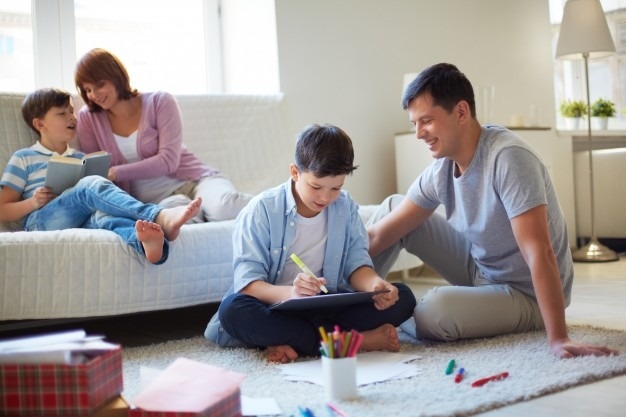
Our Parenting Style Determines How Our Kids Turn Out
2 Jan 2019 | 4 min Read
Aditi Ahuja
Author | 72 Articles
Who doesn’t want their children to be kind, polite and well-behaved individuals loved by everyone?
I am sure we all want that and everyone will acknowledge that home is the first school for a child and parents and other family members (grandparents, uncle’s, aunts, cousins etc) are their first teachers!!
Kids learn a lot from what they see happening around them and there is a great possibility that a kid who is using age-inappropriate language or even sometimes abusive words or is behaving inappropriately has learned it (see and hear) at home or has seen this happening in television or has heard it from someone who visits them regularly.
Kids observe things more closely and remember them much well than what we think!!..they may remain silent and non reactive, run away from the scene, stay scared and cry when alone on seeing something bad, but their subconscious mind keeps troubling them and how much so they try to forget an incident or bad behavior or words heard from someone it has a great bearing on their minds and value system which is still in a developing state!!
Imagine the plight of a small child who frequently watches his mother being abused or tortured at home by his dad or other family members or witnesses the things like arguments between parents, or hears swearing.
So, the point is that to raise a kid who tomorrow grows up into a good human with good values we need to work at it today, at a very early age. Few things to keep in mind are:
1. There should be a conscious effort made by every family member to avoid fighting or arguing before kids. We can’t avoid it always but we can postpone it to a time when kids are not around.
2. Use of abusive language in and out of home (swearing on someone who has just overtaken your car in a very rash manner) should be completely avoided.
3. Each adult member in the family should try and be respectful and cordial towards other members. It’s ok to lose one’s cool and temper sometimes and says or do something in the heat of the moment but it should never cross a limit that leaves a bad impact on the child’s mind forever.
4. We can’t shield our kids completely from the outside world. The effect of things they watch on the television or from what an outsider says does have an impact, but we can always try and explain to them the difference between good and bad and why someone’s words or deeds were not a good example to follow. Also keeping an eye on our kid’s company is also very important.
5. Setting an example ourselves is the best way to make kids follow something you want them to follow. Talking politely with people who work for us or even elsewhere has a great bearing on our kids’ behavior too when they grow up. If you want your child to respect others teach them that by doing it yourself.
6. It is also observed that kids who have a childhood full of discrimination, physical or mental torture in name of comparison or disciplining or are treated disrespectfully, carry a lot of resentment and anger in them. They either grow up to become under-confident people who are trying to seek love and respect from the outside world and become victims of people who are on a lookout for such individuals or grow up into berserk ones who try and take revenge from everyone. They may also go take a very wrong path (drugs, crime etc) So how we behave with our kids needs to be constantly checked and monitored. It has to be mindful parenting.
7. Last but not the least, I have myself practiced telling my daughter many moral stories, stories from Ramayana and Mahabharata and even other holy scriptures etc and that has helped me a lot in shaping her into a kind child.
If we consciously raise a whole generation of kids in this way many crimes which sometimes are shockingly done by people of a very small age group can be avoided..it will save many lives.
A


Related Topics for you
Suggestions offered by doctors on BabyChakra are of advisory nature i.e., for educational and informational purposes only. Content posted on, created for, or compiled by BabyChakra is not intended or designed to replace your doctor's independent judgment about any symptom, condition, or the appropriateness or risks of a procedure or treatment for a given person.
